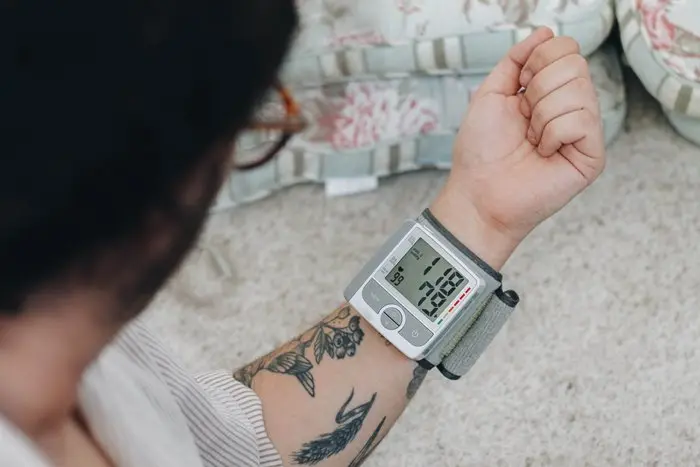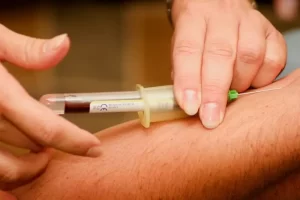High blood pressure, commonly known as hypertension, is a prevalent health condition that affects millions worldwide. It’s often dubbed the “silent killer” because it can quietly damage your body for years before symptoms develop.
Managing blood pressure is crucial for maintaining overall health and reducing the risk of heart disease, stroke, and other serious conditions.
This article aims to explore effective ways to lower blood pressure, emphasizing the importance of understanding the condition and making lifestyle adjustments.
Effective Ways to Lower Your Blood Pressure
1. Understanding Blood Pressure
Blood pressure is the force exerted by the blood against the walls of your arteries. It’s determined by the amount of blood your heart pumps and the resistance to blood flow in your arteries.
The more blood your heart pumps and the narrower your arteries, the higher your blood pressure. High blood pressure, or hypertension, occurs when the force of the blood against the artery walls is too high, leading to health issues.
2. Lifestyle Changes
Making lifestyle changes can significantly lower blood pressure and help prevent the risk of hypertension. Key changes include:
- Dietary Adjustments: Adopting a heart-healthy diet, rich in fruits, vegetables, whole grains, and lean proteins, while low in saturated fats, cholesterol, and sodium.
- Regular Physical Activity: Engaging in regular exercise, like brisk walking, swimming, or cycling, can lower blood pressure and improve heart health.
- Weight Management: Maintaining a healthy weight is crucial. Losing even a small amount of weight if you’re overweight or obese can help reduce your blood pressure.
- Stress Management: Chronic stress may contribute to high blood pressure. Finding ways to manage stress, such as meditation, deep breathing exercises, and relaxation techniques, can be beneficial.
- Limiting Alcohol and Tobacco: Reducing alcohol intake and quitting smoking can both have a positive impact on blood pressure.
3. Dietary Approaches
Reducing Sodium
A key dietary change for lowering blood pressure is reducing sodium intake. Processed and prepared foods are major sources of sodium, so cooking fresh meals and using herbs and spices instead of salt can make a significant difference.
Increasing Potassium
Eating foods rich in potassium can help balance the amount of sodium in your cells and ease pressure on your blood vessels. Foods like bananas, spinach, and beans are excellent sources.
Healthy Eating Patterns
Following specific dietary patterns, such as the DASH diet (Dietary Approaches to Stop Hypertension) or a Mediterranean diet, can be particularly effective in lowering blood pressure. These diets emphasize fruits, vegetables, whole grains, and lean proteins, and limit foods high in saturated fat and sugar.
4. Physical Activity
Engaging in regular physical activity is a cornerstone in managing blood pressure. Exercise strengthens the heart, allowing it to pump blood more efficiently, reducing the strain on arteries and consequently lowering blood pressure. Here are some key aspects:
Types of Exercise: Aerobic activities like walking, jogging, swimming, or cycling are particularly effective. Ideally, aim for at least 30 minutes of moderate-intensity exercise most days of the week.
Consistency is Key: Regularity in physical activity is more beneficial than intensity. It’s better to exercise moderately every day than to have an intense workout occasionally.
Incorporate Strength Training: Along with aerobic exercises, strength training can also help control blood pressure. It doesn’t have to be intensive; light weights or body-weight exercises can be effective.
5. Weight Management
Maintaining a healthy weight is crucial in managing blood pressure. Excess weight can lead to conditions like sleep apnea, which further increases blood pressure.
- Healthy Weight Loss: Losing even a small amount of weight if you’re overweight can help reduce your blood pressure. A healthy rate of weight loss is typically 1-2 pounds per week.
- Balanced Diet: Combine regular physical activity with a diet rich in fruits, vegetables, whole grains, and lean proteins. Avoid high-calorie, high-fat foods.
- Monitor Your Waistline: Besides monitoring weight, keep an eye on your waistline. Carrying too much weight around your waist can increase blood pressure.
6. Stress Management

While occasional stress can cause temporary increases in blood pressure, chronic stress may contribute to long-term hypertension.
- Identify Stress Triggers: Understand what causes your stress. Once identified, consider how you can eliminate or reduce these triggers.
- Relaxation Techniques: Techniques such as deep breathing, meditation, yoga, or tai chi can help reduce stress and lower blood pressure.
- Healthy Lifestyle Choices: Getting enough sleep, practicing mindfulness, and engaging in hobbies or activities you enjoy can also help manage stress.
7. Limiting Alcohol and Quitting Smoking
Alcohol and tobacco use have significant impacts on blood pressure and overall cardiovascular health.
Alcohol in Moderation
Drinking alcohol in small amounts can potentially lower your blood pressure, but this beneficial effect is lost when you drink too much. It’s generally advised to limit alcohol to one drink a day for women and two for men.
Quit Smoking
Each cigarette you smoke increases your blood pressure for many minutes after you finish. Quitting smoking helps your blood pressure return to normal and reduces your risk of heart disease and improves your overall health.
8. Regular Health Check-Ups
Monitoring your blood pressure regularly is crucial in managing and preventing hypertension. Regular health check-ups help in early detection and management of high blood pressure, reducing the risk of heart disease, stroke, and other complications.
- Home Monitoring: Using a home blood pressure monitor can help you keep a close watch on your blood pressure.
- Regular Doctor Visits: Regular visits to your healthcare provider are important, especially if you have pre-existing conditions or are on medication for hypertension.
- Understanding Readings: Learn what your blood pressure readings mean and what levels are considered healthy versus high.
9. Natural Remedies and Supplements
In addition to lifestyle changes and medication, certain natural remedies and supplements can aid in lowering blood pressure.
- Herbal Remedies: Some herbs like garlic, hawthorn, and lavender have been shown to have a mild effect on lowering blood pressure.
- Supplements: Potassium, magnesium, and fish oil supplements may also help reduce blood pressure. However, it’s important to consult with a healthcare professional before starting any supplements.
- Healthy Diet: Consuming a diet rich in whole grains, fruits, vegetables, and lean proteins can naturally help manage blood pressure.
10. Medication Management
When lifestyle changes are not sufficient to control high blood pressure, medication might be necessary.
- Following Prescriptions: It’s vital to take any prescribed medications exactly as directed by your healthcare provider.
- Side Effects: Be aware of potential side effects and communicate with your doctor about any concerns.
- Regular Reviews: Medication types and dosages may need to be adjusted over time, so regular check-ins with your doctor are important.
11. Community Support and Education
Having a support system and being informed are key elements in managing blood pressure.
- Support Groups: Joining a support group can offer encouragement, advice, and understanding from people who are facing similar challenges.
- Educational Resources: Utilize resources from trusted health organizations for information about managing high blood pressure.
- Sharing Experiences: Sharing your experiences with others can provide moral support and helpful tips for managing blood pressure.
Conclusion
Managing high blood pressure is a multifaceted approach that requires a combination of regular health check-ups, lifestyle changes, possibly medication, and natural remedies. Remember, each person is different, and what works for one may not work for another.
Therefore, it’s essential to work closely with your healthcare provider to develop a personalized plan that fits your specific needs. By staying informed, making healthier choices, and seeking support, you can effectively manage your blood pressure and lead a healthier life.
Regular monitoring and proactive management of blood pressure are key to preventing complications and maintaining overall health and well-being. With the right approach, hypertension can be managed effectively, allowing individuals to lead active and fulfilling lives.




